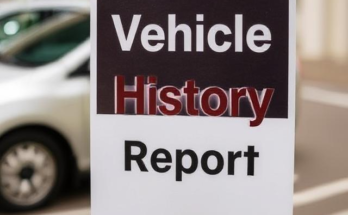The Ultimate Guide to Vehicle History Checks: Accident, Title & Odometer Verification. Bonus free VIN check here.
When buying a used vehicle in the U.S., ensuring its history is clean is crucial. Many buyers fall into traps, purchasing cars with hidden accident damage, fraudulent odometer readings, or problematic titles. In this guide, we’ll cover the essential checks every buyer should perform before making a purchase: Accident History Checks, Title Checks, and Odometer Checks.
1. Accident History Check, read more for used vehicle guide.
A vehicle’s accident history significantly impacts its safety, longevity, and resale value. Some sellers may try to hide past damages, but a thorough accident history check can reveal:
-
Major and minor accidents recorded by insurance companies or law enforcement.
-
Structural damage that can affect the vehicle’s integrity.
-
Airbag deployment records, indicating severe collisions.
-
Repairs and maintenance records, showing if the vehicle was restored properly.
Check free accident history click here.
How to Check Accident History
-
Carfax & AutoCheck Reports – These services pull data from insurance companies, DMVs, and repair shops.
-
National Insurance Crime Bureau (NICB) – A free tool to check if the car was stolen or declared a total loss.
-
Pre-Purchase Inspection (PPI) – A trusted mechanic can identify signs of past accidents, such as repainting, frame misalignment, or welding marks.
2. Title Check: Ensuring a Clean Ownership Record
A vehicle’s title provides legal proof of ownership and history. A title check helps identify potential red flags, such as:
-
Clean Title – No history of damage or legal issues.
-
Salvage Title – Issued when a car is declared a total loss due to an accident, flood, or theft.
-
Rebuilt Title – Indicates a salvage car has been repaired and passed an inspection.
-
Lien Title – The vehicle still has an outstanding loan, meaning the seller doesn’t fully own it.
-
Flood or Lemon Title – The car has suffered flood damage or was declared a manufacturer defect (lemon law buyback).
Check free title of your vehicle click here.
How to Perform a Title Check
-
National Motor Vehicle Title Information System (NMVTIS) – A government-approved service that provides title records.
-
DMV Title Lookup – Some state DMVs offer online title history checks.
-
Vehicle History Reports (Carfax, AutoCheck, Free VIN Check) – These tools consolidate data from multiple sources to give you a detailed history.
3. Odometer Check: Avoid Fraudulent Mileage Readings, read more for used vehicle guide.
Odometer fraud is a common scam where sellers roll back the mileage to increase a car’s value. A lower odometer reading makes the car appear less used, leading to an inflated price. Signs of odometer fraud include:
-
Inconsistent wear and tear – Excessive wear on the steering wheel, seats, or pedals despite low mileage.
-
Discrepancies in service records – A vehicle history report should show a consistent mileage progression.
-
Dashboard tampering – Loose screws or scratches around the odometer panel can indicate manipulation.
Perform free odometer check click here.
How to Verify Odometer Readings
-
Vehicle History Reports – Look for mileage inconsistencies.
-
Maintenance and Inspection Records – Ask for past service receipts with mileage logs.
-
State DMV Odometer Check – Some states track odometer readings during annual inspections or title transfers.
Final Thoughts
Buying a used vehicle is a significant investment, and skipping these checks can lead to costly mistakes. Always verify accident history, title status, and odometer readings before making a purchase. Using trusted sources like Carfax, NMVTIS, and professional inspections can help ensure you get a reliable vehicle without hidden surprises.
By performing these essential checks, you can avoid scams, make an informed decision, and drive away with confidence.
To do instant free vin check click here.
Want to check advantages and disadvantages of used car click here.




